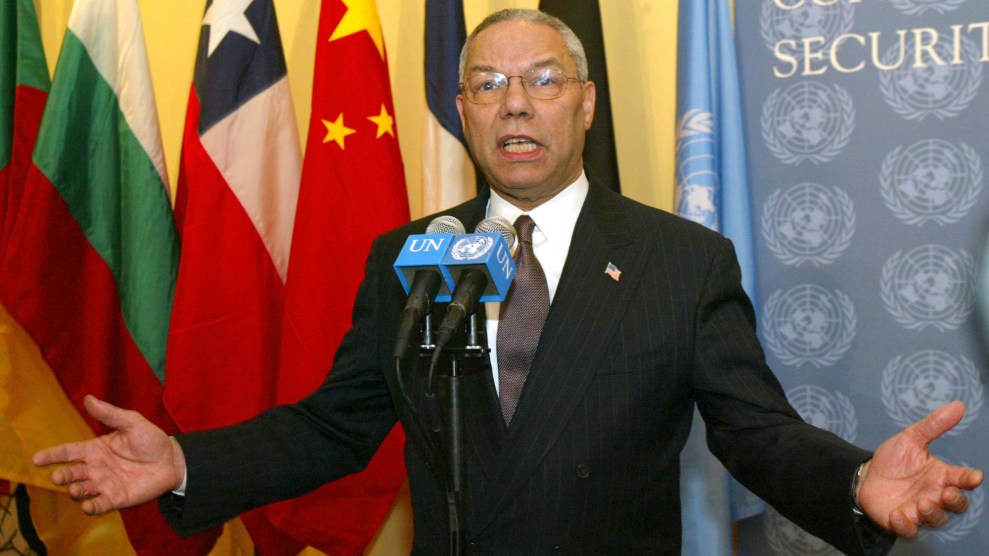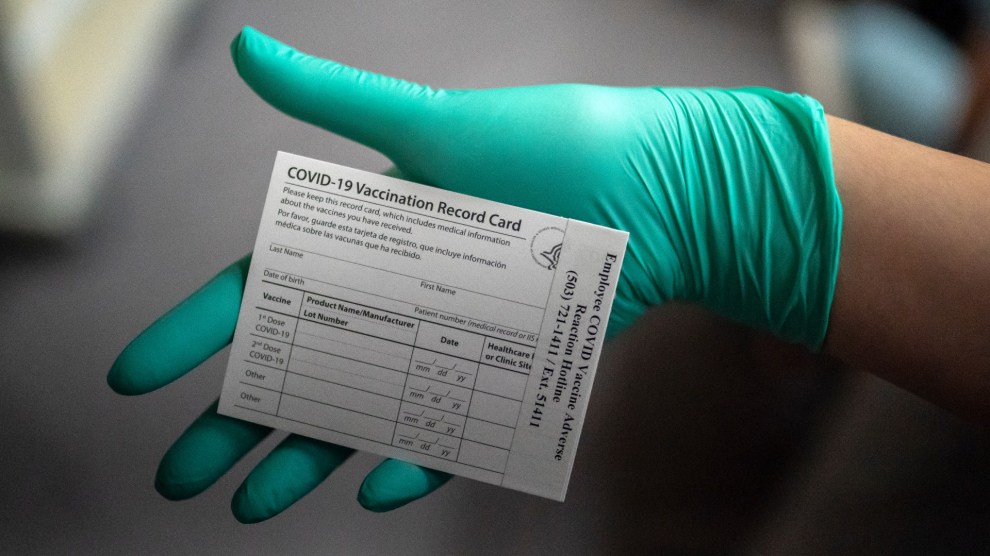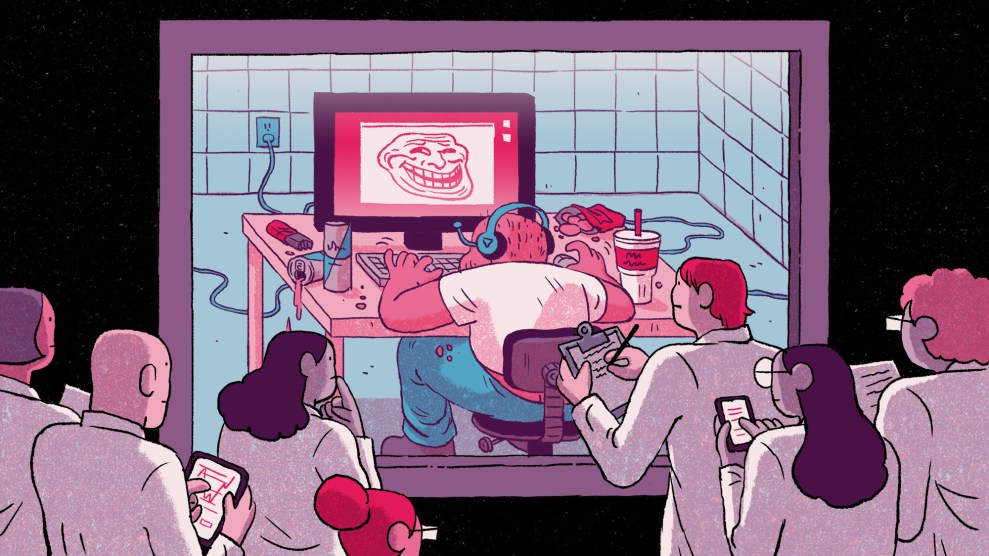
Shawn Baldwin/Getty
Colin Powell, the former US secretary of state, has died from complications of COVID-19 at age 84. The news of Powell’s death only broke a few hours ago, but anti-vaccine groups are already having a field day. Instead of mourning the passing of an accomplished soldier and leader, they’re fixating on the fact that Powell was fully vaccinated. The crucial bit that they’re leaving out: Colin Powell suffered from multiple myeloma, a cancer of the blood that significantly weakens the immune system.
Fox News host Will Cain went on a rant this morning, saying “the fully-vaccinated people are being hospitalized and fully-vaccinated are dying from Covid.” Fox News host John Roberts tweeted that Powell’s death was evidence of vaccines’ waning efficacy. (He later deleted the tweet.)
NEW: after being called out, Fox News’s @johnrobertsFox deletes vaccine disinformation tweet about Colin Powell’s death, does not issue correction. pic.twitter.com/f6L7CS42gF
— Kaivan Shroff (@KaivanShroff) October 18, 2021
Other rightwing media personalities jumped on the bandwagon:
Nothing to add. https://t.co/rin4iExe4N
— Monica On Air (@monicaonairtalk) October 18, 2021
Adding to the swarm, anti-vaccine activists are already claiming that Powell would have survived if he had been treated with the ant-parasitic drug ivermectin.
It’s not just anti-vaccine groups and rightwing media: Major news outlets ran headlines about Powell dying from COVID-19 even though he was fully vaccinated—but neglected to mention that he was immunocompromised.
NYT, MSNBC, Newsweek, & AP all mention Colin Powell being fully vaccinated in their headlines, but don’t mention that he was immunocompromised from multiple myeloma. pic.twitter.com/vSdQu7iMQ5
— Caroline Orr Bueno, Ph.D (@RVAwonk) October 18, 2021
Anti-vaccine groups will certainly latch onto these headlines, but even more worrisome is the likelihood that people who are still deciding whether to be vaccinated could see these stories and come away with the false impression that vaccines are useless.
Here’s another bit of nuance that I haven’t seen anyone really talking about but seems the most significant: The reason Colin Powell died of COVID-19 is that he caught it—which meant that it was still circulating among people he had contact with. This point may seem obvious, but too often we forget that one of the greatest risk factors for contracting COVID-19 is community spread. The more people around you who have the disease, the more likely you are to catch it. The best way to drive down community transmission is to boost vaccination rates. If more people in the United States were fully vaccinated, we likely wouldn’t be dealing with outbreaks at this scale nearly two years into the pandemic.












